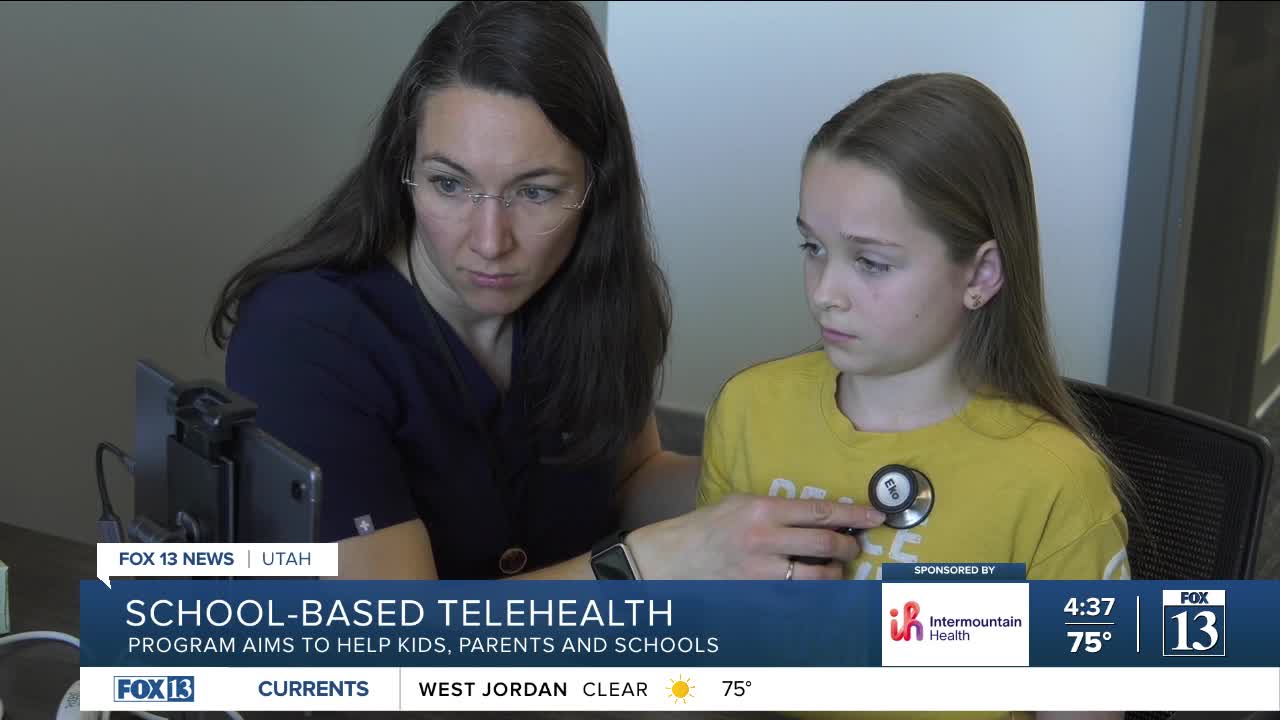A growing program in Utah schools is helping students get care without having to leave the classroom.
School-Based Telehealth, offered through Intermountain Health, connects students with medical providers virtually during the school day. According to experts, the program improves access to care, reduces absenteeism and gives school nurses more tools to help children who don’t feel well.
At Peruvian Park Elementary in the Canyons District, nurse Renee Buse demonstrated how it works. A student’s vitals are taken, and a doctor joins virtually to complete the exam. With the nurse in person and the doctor present virtually, the student gets a checkup.
Amy Back, executive director of pediatric telehealth for Intermountain Health, said the program benefits everyone.
“You know, if we can allow kids in the right setting to get the right care at the right time, it benefits everybody. It really does,” she said.
The service also allows nurses to provide basic treatments with parent consent. For example, a student with a headache can receive Tylenol and return to class. According to Intermountain Health, about 96% of students who received a telehealth consult last year were able to stay in school — saving an estimated 15,000 days of learning.
Parents must opt in and provide insurance information, though financial help is available. A Connect Care visit costs $79, and parents can even join virtually so they don’t have to leave work.
Currently, six Utah school districts — Wasatch, Weber, Canyons, Iron, Kane and Park City — are participating, along with three charter schools. Expansion is underway, with plans to include mental health services in the coming year.
“Parents, school health professionals and providers are very happy with what the program offers,” Back said. “This has shown to receive very positive feedback, including some parents who have agreed it is a safe, fast, convenient, trustworthy and money-saving option.”
Intermountain Health says the program also helps reduce healthcare costs overall by avoiding unnecessary emergency visits and keeping students in class.
For more information, contact Shelly Cooper at shelly.m.cooper@imail.org.




